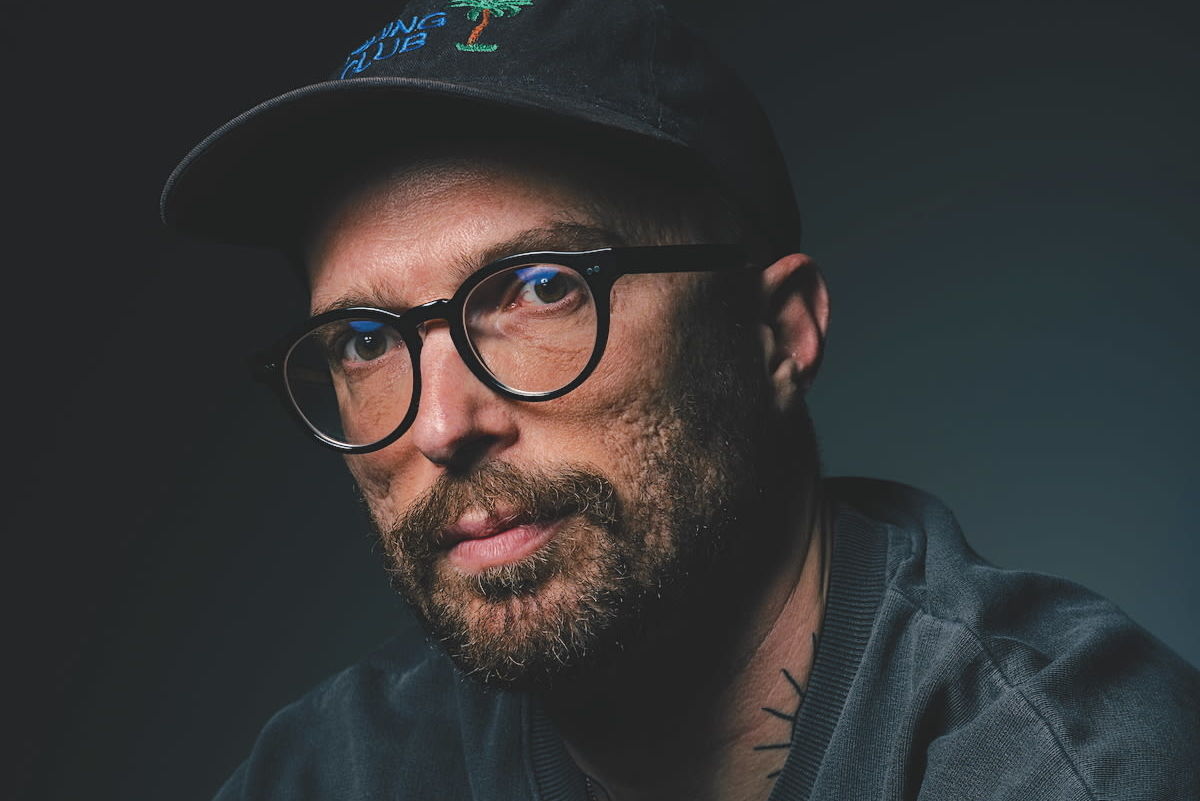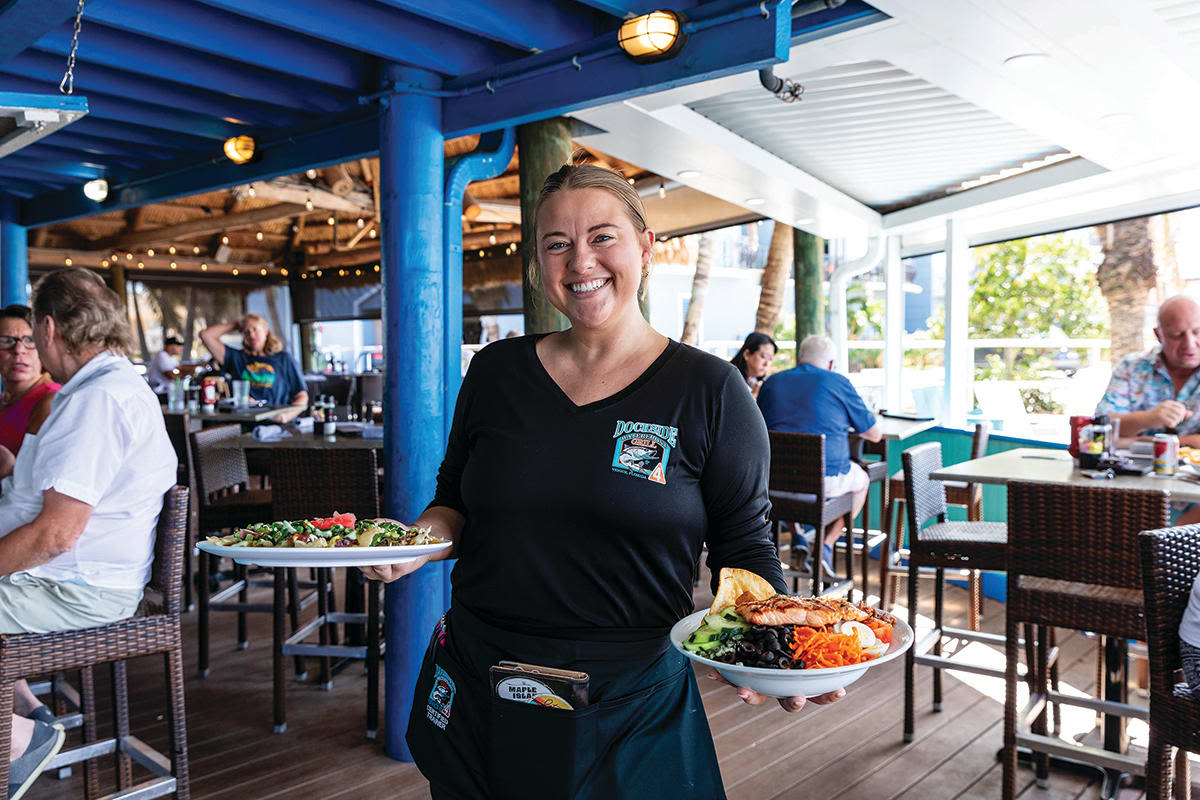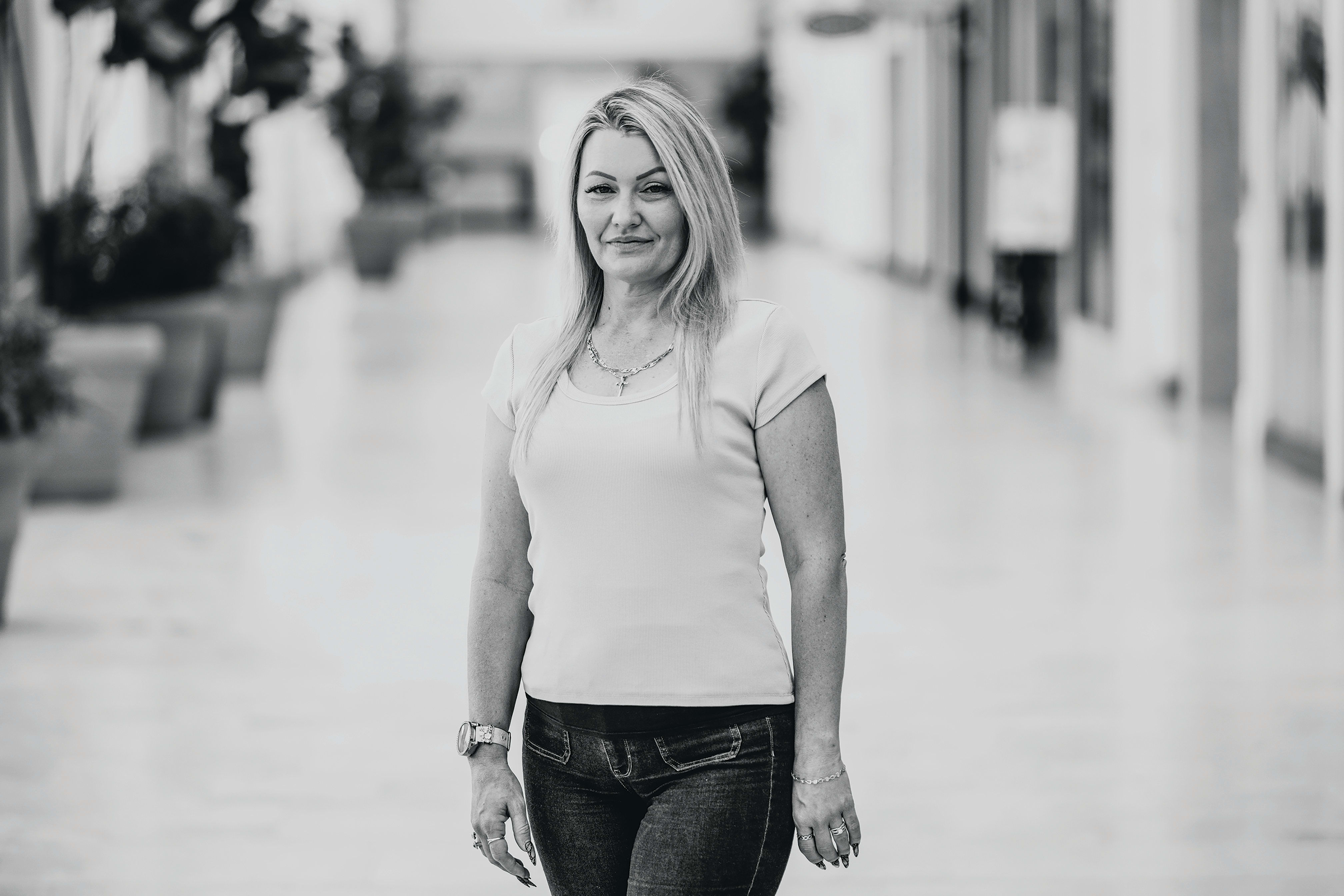America’s Former Surgeon General Discusses Loneliness, Isolation and Covid-19
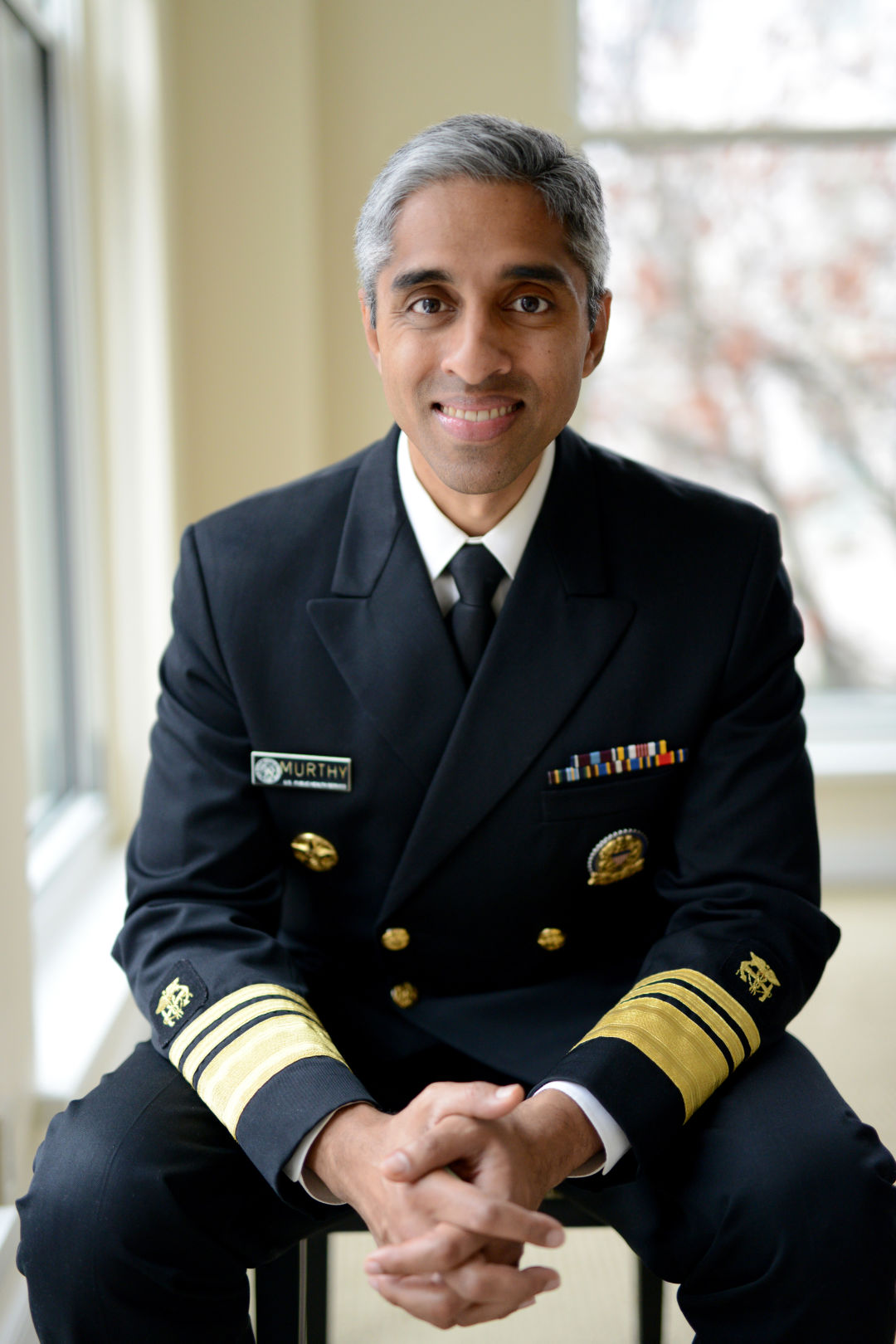
Former U.S. Surgeon General Dr. Vivek Murthy.
Image: Meredith Nierman
The Covid-19 pandemic hasn’t just caused a devastating economic recession. It has also birthed what former U.S. Surgeon General Dr. Vivek Murthy calls a “social recession,” a “fraying of social bonds” that is worsening what Murthy sees as an epidemic of loneliness in America. In April, Murthy published Together: The Healing Power of Human Connection in a Sometimes Lonely World, a reflection on his time as surgeon general and his gradual awakening to the pressing public health crisis of loneliness and isolation.
Murthy spoke with Sarasota Magazine in July for our recent feature on how Covid-19 has left many in Sarasota feeling alone. Below, you’ll find an extended interview with Murthy, in which he discusses the specific dangers loneliness poses to different communities, the risks posed by social media and technology, and how we might find "a powerful silver lining in Covid-19." The interview has been edited for length and clarity.
Having just written a book on loneliness and isolation, what was your first reaction when terms like “social distancing” and “stay-at-home orders” began circulating?
"I was worried, because we were already dealing with a deep well of loneliness before Covid-19 arrived, and my concern was that the distancing that we would be forced to observe would separate us even further. The irony of Covid-19 is that it was cutting us off from other people exactly at the time when we needed people more than ever.
"There’s another related piece that I worried about, as well. In pandemics like this, it can be easy to become fearful of other people. You look at others and you wonder if they might be a source of infection. As that fear of other people builds, it can actually make you feel more isolated."
When the pandemic is less of a threat, how people are going to look at each other? Are we going to have a hesitancy to be close to someone?
"Who knows what will remain a permanent change in how we interact with one another? For example, I've heard people say, 'I don't know why we ever shook hands with others. We should have non-contact greetings when we meet someone for the first time. Why should we unnecessarily put ourselves at risk?' Who knows? We don't know what that would look like. But what I think we do know is that there will be an adjustment period and things may not return entirely to what they were pre-pandemic."
Are there specific risks that seniors face from isolation and loneliness?
"When people think about loneliness, they often think that this is a problem that primarily affects seniors. That's not entirely true. While seniors are certainly at risk of loneliness, particularly much later in life, like around age 80 and above, people across the age spectrum are struggling with loneliness, and that includes young people. Adolescents and young adults have one of the highest peaks of loneliness across the age spectrum. This is really a universal problem.
"What I worry about with seniors is that for people who are older and who are struggling with chronic illnesses that may limit their mobility, getting out and about to see other people can be a challenge.
"What I also worry about is that some seniors are less comfortable with technology than others and so being able to use technology to be part of online communities or to communicate regularly with family and friends may be challenging. To be able to video conference, both you and the other person need to be comfortable with technology. You also need to have access to technology and to broadband and I worry that that sometimes is not the case for seniors.
"I think particularly about about those seniors who are living in institutionalized settings, who are living in nursing homes or assisted living facilities, places where we have seen Covid spread rapidly and that have precautions in place to restrict visitors. The pictures that we've all seen of elderly nursing home residents having to wave to family members through a window because they can't see them and because they're not allowed to have visitors are heartbreaking."
You mentioned different “peaks” of loneliness. Can you explain what you mean?
"The data on this is still evolving, but there's at least some data that indicates that there may be several peaks of loneliness during the lifespan. One of those peaks seems to be adolescence and young adulthood. Another one seems to be in people's 50s. And then the third peak seems to happen much later in life, when people are in their late 70s or early 80s.
"But the key message that I take when I look at all the data is that even though those may be the peaks, people, even in between those peaks, are experiencing substantial levels of loneliness. The numbers are really striking. When you look at the more conservative surveys, and I mean not politically conservative, I mean by methodology and results, on the lower end, some of those studies put the percentage of adults struggling with loneliness in the United States at around 20 percent but others put that number at closer to 50 percent.
"The key thing to take away from the age data is that everyone seems to be at risk for loneliness across the lifespan and just because you are familiar with technology and have access to technology and to social media, the way young people commonly do, does not insulate you from loneliness. And, in fact, what we're learning is there may be a relationship between how you use social media and your experience of connection or loneliness."
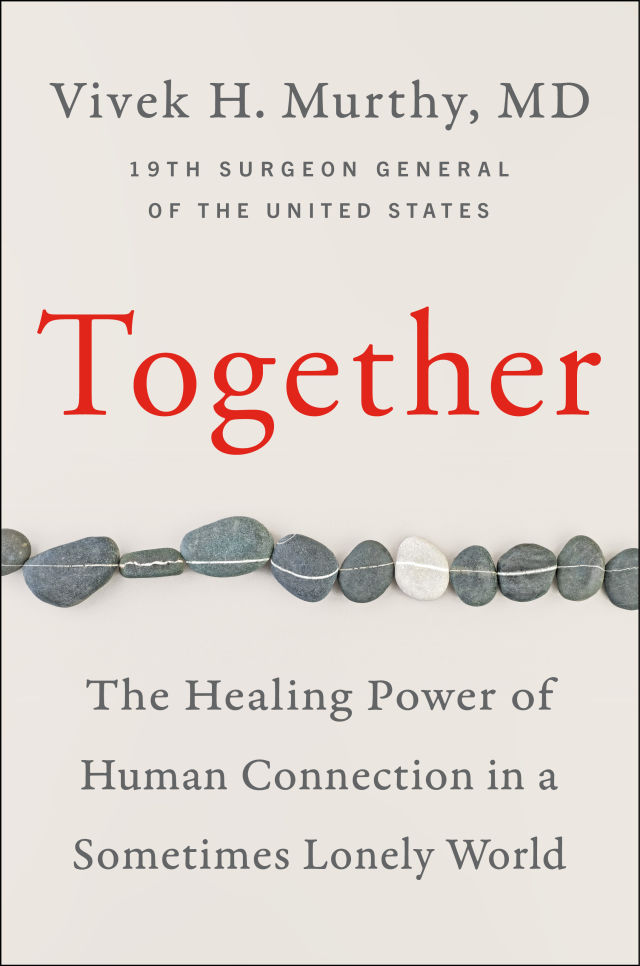
The cover of Murthy's book, Together: The Healing Power of Human Connection in a Sometimes Lonely World.
Image: Courtesy Photo
It seems like there's a link between isolation and heavy social media use, but it’s unclear whether social media causes isolation or people seek out social media because they are already feeling disconnected. Is that correct?
"Yeah. There's that causality question which has not been fully answered.
"But one thing that does seem to be [true] is it doesn't seem that widespread use of social media is the answer to loneliness. Because, if that were the case, you would expect that people who are using social media more should be the ones who are less lonely, but that doesn't seem to be the case. It does not seem like social media is the panacea for loneliness the way it has often been framed by people driving these platforms.
"But it's not that all social media is good or bad. It's really about how we use social media and more broadly about how we use technology.
"So, say I'm going to New York on a work trip and I use Facebook to message my friends to say, 'Hey, I'm going to be in New York. Is anybody free for lunch or dinner? I’d love to catch up.' And then we actually end up connecting and meeting offline. That's a wonderful way to use online connection to facilitate offline connection.
"Or, if you are in a community where you feel like there are very few people who are like you or are having your experience, either because you’re a member of a racial or ethnic minority group or because you are gay or because you have a rare illness, you may not feel like you have a community of people who understand what you're going through. Being able to find some of those communities online can be quite powerful and those kinds of online communities can be a lifeline for people, especially young people who don't feel like there are others who understand their day-to-day experience.
"But we can also use [technology] in ways that can be harmful. If we are, for example, using social media to such a great degree that we’re crowding out our time for in-person interaction, then that can be problematic. There are few things that substitute for seeing people face-to-face. And what we end up doing, unfortunately, is sometimes substituting low-quality interactions for what used to be higher-quality interactions.
"The second challenge with social media and technology more broadly is when it starts to dilute the quality of our in-person interactions or our phone conversations.
"I've done this a number of times, which I am embarrassed by and regret. I’ve had the experience of catching up with a friend on the phone and then somehow finding myself multitasking in the middle of that conversation—checking my social media feed on my phone, looking at my inbox, Googling a question that just popped into my head, maybe even answering a quick email that seems simple and straightforward, going through my mail.
"A lot of us do this, because, one, we convince ourselves we can multitask and pay attention to the person and, two, because it's so easy to do, because the devices are literally in our pockets and we can just pull them out and and we can engage in all kinds of activity so seamlessly.
"But science tells us very clearly we cannot multitask. Our brain, in fact, task-switches. So when I'm checking my social media feed, I’m not fully present and paying attention to what my friend is saying. The more we allow technology to crowd out our interactions with with friends and family members, the more technology threatens to dilute the quality of those interactions.
"Finally, there's another less intuitive, but very important, effect that social media can have on us, and that has to do with how social media affects our perception of ourselves.
"When I was growing up, without Facebook and Instagram around, there was already this culture of comparison that existed where people judged their worthiness and the quality of their life by what their neighbor had, by what their friends had. That culture of comparison has been dramatically accelerated with social media.
"Now, you are constantly seeing pictures and reading posts about other people's lives. These posts are curated. They're selected to highlight what's good about other people's lives. But what happens is, when you're scrolling through your social media feed, you have the experience of comparing other people's best days to your average days and you always come up short. Even though we know it in our heads, when you see pictures of people having a great time with their friends and celebrating and sharing news about job promotions, it's easy to feel that you're not measuring up and that your life isn't good by comparison.
"I worry about this especially for young people whose identities are still being shaped, but I worry about it for all of us, because our self-worth is something that we cultivate over a lifetime. It doesn't matter if we’re 16 or 60, if we are surrounded by messages that tell us that our life isn't good enough, that we aren't good enough, then that can be very destructive in how we perceive ourselves, and that in turn has an impact on how we interact with other people.
"If we approach other people from a sense of insufficiency, then we may lack the confidence to actually go and engage with others because we may feel that we’re unworthy. And even if we do engage with others, we may feel pressured to try to be the person that they want us to be so we may ultimately approach others seeking approval and validation. The more our connection with our self is weekend, the more we perceive that we don't have worth and value, the harder it becomes to connect with other people.
"I worry, in particular, about young people, because while these messages that tell us we're not enough sometimes come through other people's posts, they also come through advertising and through traditional and new media and a lot of these ads are trying to help people feel that they aren't smart enough, thin enough, good-looking enough, rich enough or famous enough. Ultimately, they're trying to sell you some sort of product or service that will help you fill that need. When you hear that message again and again and again, especially when you're young and your identity is being formed, you start to believe that."
I grew up before social media and I still suffer from comparing myself to other people. I cannot imagine what it’s like for somebody who’s 15 right now.
"I'm not a digital native in the sense I didn’t grow up with tech. But, yeah, I'm susceptible to those same things and I've got to set limits around my use of social media and sometimes I've had to take entire breaks from social media.
"It's a very complicated tool. And when you think about other complicated tools, like a car, for example, we train people in how to operate these vehicles, we warn them about the dangers of it, we have a bunch of safety features to avoid people getting into accidents and harming themselves and others. Social media is a tool that has a lot of upside and downside, but there's very little in the way of guardrails around it. There’s very little in the way of safety features to help protect people, or any sort of guidance that young people get early on as they're using social media.
"This is still a relatively new phenomenon and we're still trying to understand the full impact it has on people. But over the last two decades, it feels like we've been in the midst of a giant experiment to see how this kind of technology is going to affect us and our relationships with other people. The promise in the beginning was that it would be all upside, but the reality is much more complicated than that."
I've been reading articles about increases in drug overdoses since the beginning of the pandemic. In your book, you write about meeting people who were affected by the opioid epidemic, and I was curious to hear your thoughts about people turning to substance abuse during the pandemic. Is that something that is weighing on your mind?
"Absolutely. There has been a surge in overdose deaths from opioids during the time of Covid-19. There also has been a significant increase in alcohol intake, which has been very concerning.
"I think, particularly when it comes to opioid use disorder, but addiction more broadly, there are several reasons why this is happening. One is because medical care has been disrupted and people are scared to go to health care settings, and their doctors and therapists may not be able to provide care from a distance. Many people are finding their routine care disrupted, and part of that care for many people with opioid use disorder is medication-assisted treatment. Disrupting that care can be dangerous and can certainly put people at risk for relapse and then, by extension, for overdose.
"The other challenge we're having is that community is such an important part of the recovery process. During my time as surgeon general and afterward and certainly during my time working at Brigham and Women's Hospital in Boston as an internal medicine doctor, I’ve met thousands and thousands of people who have struggled with addiction and have also met many who have come through that dark tunnel and emerged on the other side in recovery. And, to a T, everyone I met who has been in recovery talks about a person or group of people that were instrumental in helping them make that journey. It is very difficult to overcome a substance use disorder without people in your life who are supporting you. Not being able to get together in person with your community, whether that's an AA group or whether that's friends who support you, can be devastating.
"You might think, 'Well, why don't we just translate all that into online interaction. People can have video conference calls, etc.' And they can, but it’s not always the same. It's not easy to have the kind of intimate and open conversations that you have in a group online instead. It takes time to figure out how to do that, how to develop a rapport online. But also, we should just remember that there are many people in our country who still don't have access to broadband and who don't have the technology needed to be able to video conference. So this is a real challenge.
"And I guess the final and most obvious thing is that one of the biggest triggers of relapse with substance use disorders are times of stress, and it's hard to think of a time that has been more stressful for more people than Covid-19. Whether it's people who are worried about their livelihoods or whether it’s the stress of not being able to see people that you care about, whether it's worry about your kids and whether they can enroll in school or worry about family members who are older and may be at risk for Covid-19, there’s a long list of things people are worried about and anxious about. Perhaps most of all is the uncertainty around when this will end.
"That creates a perfect storm of stress which can trigger people who are struggling with substance use disorders, which can trigger relapses.
"I also worry more broadly about mental health. We know that anxiety and depression symptoms have skyrocketed during this time. If you look at surveys that are being done regularly by the United States Census Bureau and the Centers for Disease Control and Prevention, we see that depressive symptoms have more than tripled during Covid-19, compared to the same time last year. So there are a lot of spillover effects of Covid-19 that go well beyond the direct impact that Covid has on our bodies."
After the immediate crisis does pass, what do you think the long-term effects of Covid-19 will be?
"We know that when we look at natural disasters like hurricanes and tornadoes, the physical health impacts are often more clear than the mental health impacts, but the anxiety, depression and post-traumatic stress disorder that result from natural disasters can linger for weeks and months and even longer after the immediate threat is gone.
"With Covid-19, even if we were to find a vaccine that works, even if you were to get that to everybody who needs it in the country, there would still be a lot of damage to repair—damage to our physical health, but also damage to our mental health and to our connections with other people and our relationships.
"Relationships don't always turn on and off like a light switch. Once they diminish, they often require a reinvestment of time and energy and attention, and there will be a time after this all ends, when we have to think about how to rebuild our relationships that have been weakened during this time.
"The question is: Do we just have to accept that and deal with the fallout and figure out how to recover once Covid is no longer a threat? Or are there things we can do right now to reduce that impact on our social health, things that may even, in fact, strengthen our sense of connection beyond what it was pre-pandemic?
"That's where I think it's important for us all to focus. To say, 'How can we use this? How can we use this pandemic as an opportunity to step back and take stock of our lives, to think about where people fit into our lives before the pandemic began, to question whether the priorities that we live are, in fact, the same as the priorities that we hold in our heads?'
"For me, there's been a gap. If you were to ask me, “What are your top priorities in life?” I and most others would cite a person or group of people who are top priorities. Maybe it's our spouse or children or parents or best friends. But the real question is: Do we live our life in a way that reflects those priorities? And the truth is, if I look at my own life over the last 10 to 20 years, the answer is: There is a gap. Because the place where I was putting the majority of my time, energy and focus was not so much on people. It was more on work.
"It feels painful to say that. I feel ashamed to say that. But it's true, if I'm honest about it, and so the process of writing the book was a really personal journey.
"There was a lot I had to learn—about what was driving loneliness, about how to build a more connected life, about how to close the gaps between our stated and lived priorities. And I think that this time, this pandemic, is an opportunity for us to do a reset. It's a chance for us to double down on our commitment to our relationships and to ask how we can put people first in every aspect of our lives.
"That's not easy to do, but the best opportunities we have for creating substantive change in our life are actually times of turmoil, and if we can come out of this pandemic more committed to each other, more focused on cultivating our relationships with one another and nurturing those relationships, then I believe we would have found a powerful silver lining in Covid-19."
